About the Program
Studying Buddhism within the Interreligious Engagement field at Union allows you to enter into some of the most exciting and challenging conversations of our time. How do we understand social justice through a dharmic lens? How do we engage one another’s faiths and traditions without causing harm? How do we orient spiritually in a time of climate instability? How does one respond skillfully to a world in need of deep healing transformation? At Union, BIE students are able to discern these questions and countless others together with a cohort of Buddhist students while also engaging widely ranging student perspectives across faith traditions. What we have found over the years is that few places are as academically exciting as a Union classroom. We invite you to add your voice to the conversation as we collectively find our way to a more peaceful and just world.
The Thích Nhất Hạnh Program for Engaged Buddhism (TNHEB) promotes academic and public education aimed at cultivating diverse Buddhist responses to pressing social issues. It seeks to generate innovative and informed discourse on topics, such as violence, climate change, racism, poverty and economic inequality, incarceration, gender and sexuality, religious pluralism, and the intersection of contemplative practice and social action.
Buddhist Collective at Union
For more information on the Buddhism at Union, please visit the Buddhist Collective at Union website.
Academic Programming
Master of Divinity in Buddhism and Interreligious Engagement (M.Div. BIE)
The M.Div. BIE is a 78 credit, three-year professional graduate degree that allows students to pursue Buddhist ministry and chaplaincy within an interreligious, socially engaged context. This degree prepares individuals for diverse leadership roles working with and in Buddhist communities as well as bringing Buddhist practices and principles to communities that may not identify as Buddhist. These roles include religious and spiritual leadership; chaplaincy at universities, hospitals, or prisons; professional counseling; teaching; and careers in interreligious/interfaith cooperation, policy-making, social justice advocacy, journalism, nonprofits, and government.
The M.Div. BIE curriculum engages students in sustained and probing study of Sacred Texts, History, Systematic Theology, Practical Theology and field education. The curriculum has three distinctive features:
Focus on Buddhist tradition and Buddhist practice: The M.Div. BIE provides a solid foundation in the Buddhist tradition. M.Div. BIE students take at least 27 credits (9 courses) that focus on foundational sources, disciplines, practices, diversity, and contextual realities of the Buddhist tradition and Buddhist practice.
- A focus on interreligious engagement sustains exposure to other religious traditions and interreligious engagement. Students are required to take at least 16 credits (5 courses) on Christianity, another religious tradition, and the theory, methods, and approaches of interreligious engagement.
- Focus on social disparities: In keeping with Union’s broader curricula, the M.Div. BIE intentionally engages social disparities based on gender, race, class, sexuality, and other marginalizing forces. Integrated into many courses, the goal is to cultivate an ability to respond to these disparities with analytic rigor, historical consciousness, sensitivity to tradition, equanimity and compassion.
- Students are able to take courses at Union and at other neighboring institutions with which Union has existing cross-registration agreements, including the Graduate School of Columbia University, the Jewish Theological Seminary, and Fordham University. In addition, students can enhance their experience through thesis projects, guided reading courses, internships, and field and CPE placements at relevant sites.
Master of Arts in Buddhism and Interreligious Engagement (M.A. BIE)
The Master of Arts (MA) is a two-year, full-time degree program with a 51-credit minimum requirement. A concentration Buddhism and Interreligious Engagement (BIE) will allow to deepen in your Buddhist scope of knowledge while acquiring broad knowledge and academic skill by taking a common core of courses in the “classical” theological disciplines of Bible/Sacred Texts, Church History/Historical Studies, and Theology and Ethics and in the interdisciplinary field of Interreligious Engagement.
Union’s curricula for all degree programs intentionally engage disparities in a society based on gender, race, class, sexuality, religion, and other divisive or marginalizing forces. Studying in this environment is both a strength and a challenge. Studying as a BIE student while getting an MA is a unique opportunity that prepares students to work in an interreligious, socially engaged context.
The MA BIE provides a solid foundation in the Buddhist traditions. MA BIE students take at least 24 credits (8 courses) that focus on foundational sources, disciplines, practices, diversity, and contextual realities of the Buddhist traditions and Buddhist practice.
- View the Program Guide for a detailed overview of the degree requirements.
- The MA BIE degree planner with course requirements can be found here.
Upcoming Events
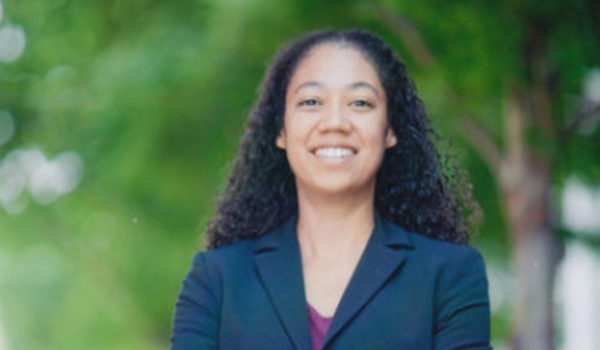
Visiting Professor of Buddhism & Black Studies
We are very excited to announce that Dr. Rima Vesely-Flad '02 will be joining the Union Theological Seminary community as the Visiting Professor of Buddhism and Black Studies.
Read More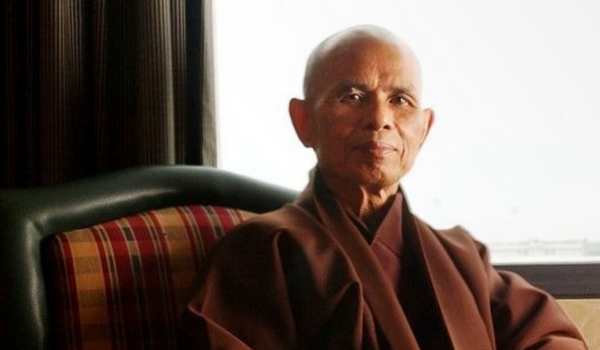
In Memoriam: Thich Nhat Hanh
The Union community is saddened to learn of the death of Zen Master Thích Nhất Hạnh ’63. In his death, we recognize the life of one of the most influential Buddhist teachers of our time.
Read more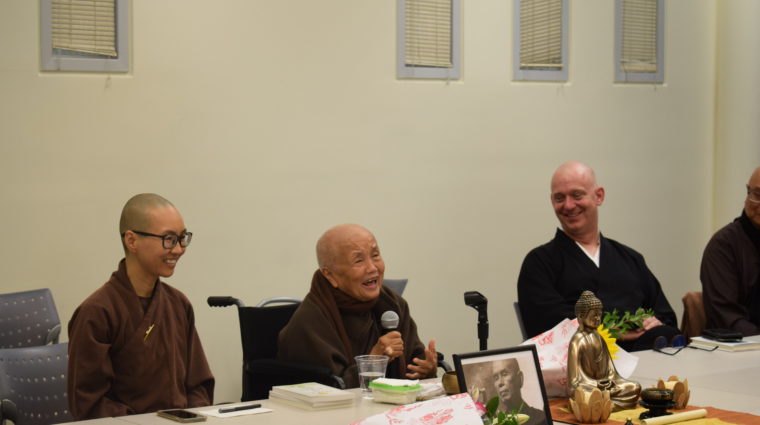
Walking the Path of Compassion
Sister Chan Khong, Elder nun of the International Plum Village Sangha and monastic disciple of Thích Nhất Hạnh, came to Union on August 30th. In an afternoon filled with storytelling, wisdom, and song, she spoke on mindfulness, humanitarian work, and braving challenges with a heart of compassion.
Read MoreIn Memoriam: Thich Nhat Hanh
The Union community is saddened to learn of the death of Zen Master Thích Nhất Hạnh ’63. In his death, we recognize the life of one of the most influential Buddhist teachers of our time.
Read MoreThích Nhất Hạnh Program Receives Grant
Union’s Thích Nhất Hạnh Program for Engaged Buddhism has been awarded a $500,000 grant from the Henry Luce Foundation!
Learn MorePublic Programming
Public Lecture and Conference Series
TNHEB offers at least two major public events related directly to Buddhism, social action and interreligious contemplative engagement each year. These events take the form of panels with multiple participants, one-day colloquia, artistic performances, small conferences or invited lectures by prominent voices in the fields.
“Buddhism in the Public Square”
TNHEB organizes workshops, conferences and other events that bring together a small, interdisciplinary, and intergenerational cohort of New York-based scholars, dharma teachers, community organizers and social activists who are interested in critically engaging questions of Buddhism, academic and public scholarship, the intersection of contemplative practice and social justice and the seminary’s role in Buddhist community organizing and activism. These workshops aim to establish ongoing conversations and networks across New York City academic institutions, Buddhist centers, community-based organizations and activists.
An example of this in action was our February 3rd event, Buddhist Action: Morals, Vision, Action, where 225 engaged Buddhists met at Union to begin organizing a coalition of Buddhist individuals and organizations able to respond effectively to social injustice, violence and the increasing anti-democratic climate of our nation. This meeting gave birth to the Buddhist Action Coalition, a community of engaged Buddhists who organize in the New York region in coordination with broader national efforts. Union students are invited to participate in this ongoing gathering of scholars, dharma teachers and organizers who meet regularly at UTS to discuss and organize around these issues.
Engaged Buddhist Leaders Program
The Engaged Buddhist Leaders Program creates multi-day conferences for leaders in Engaged Buddhism who serve or intend to serve in religious, scholarly, community, or social leadership capacities. With a focus on bringing together dharma teachers whose voices and mutual exchange may not be regularly supported for reasons of gender, race and class, the program aims to nurture a community of dialogue among diverse Buddhist leaders; to foreground participants’ engagement of various aspects of the Buddhist tradition (including exegetical, ethical, spiritual and theological methods and approaches); and to cultivate more detailed knowledge around specific themes of contemplative action and social justice.
Advisory Council
TNHEB activities are planned in consultation with the members of its Advisory Council. Members of the Advisory Council are selected based upon academic expertise, experience as leaders in the field of socially engaged Buddhism, and experience in interreligious engagement.
Special Events
Enjoy the recordings from two special events hosted by TNHEB during the 2022-23 academic year, including a book launch of Thích Nhất Hạnh’s Vietnam: Lotus in a Sea of Fire and a visit from the Venerable Singing Nun of Plum Village Tradition: Sister Chan Khong.
Vietnam: Lotus in a Sea of Fire
On November 1, 2022, TNHEB, Parallax Press, Blue Cliff Monastery, and the Thich Nhat Hanh Foundation joined to celebrate the new edition of Vietnam: Lotus in a Sea of Fire. Originally published in 1967, and one of Thich Nhat Hanh’s first books written in English, this insightful text offers the perspective of the Vietnamese people on what they often refer to as “the American War.”
Compassion In Action: Sister Chan Khong
Venerable Sister Chan Khong is one of the first monastic disciples of Zen Master Thich Nhat Hanh. She continues her more than 55-year service as Thich Nhat Hanh’s main assistant and director of his humanitarian projects. The eldest nun of the International Plum Village Sangha, she is known as the compassionate, persistent, and brave singing nun who has devoted her life to working for peace and engaged Buddhism.
Dharma and Justice Dialogues
Learn from Rev. Kosen Gregory Snyder and esteemed thought-leaders as they discuss how to engage with anger, wisdom and politics from a Buddhist perspective. We invite you to reflect on these topics in community with Lama Rod Owens, Rev. angel Kyodo williams and Lama Justin Von Budjoss.
INVESTIGATING CASTE AND RACIAL OPPRESSION THROUGH A BUDDHIST LENS
In this virtual conversation, Thenmozhi Soundararajan and Rima Vesely-Flad discuss Buddhism, intergenerational trauma, how the experiences of caste and racial oppression mirror one another, and their indebtedness to the Black Feminist and abolitionist traditions.
SOLIDARITY IN BLACK AND ASIAN BUDDHIST SANGHAS
As Buddhism gains numbers of practitioners throughout the U.S., there is increasing attention paid to cultural adaptation and appropriation within "convert" sanghas. How can Buddhist practitioners, including Black Buddhists who have similarly experienced cultural appropriation, respond ethically? As violence continues to be disproportionately inflicted upon Black and Asian community members, how can Black and Asian communities create further avenues for solidarity?
GRIEF AS SOCIAL JUSTICE WORK
In this conversation we will explore the centrality of grief on the path of liberation, and how individual and collective practices and rituals in the Buddhist tradition can support, make space for and help reclaim how we integrate loss; and in turn be a part of reforming systems of oppression that depend on the denial and suppression of the vast histories of what we need to collectively grieve.
BLACK BUDDHISTS AND THE BLACK RADICAL TRADITION
They will explore themes of Blackness, gender, and sexuality within Dharma practice and communities. Engaging the work of Black Buddhist teachers, they will together examine the distinct contributions of contemporary writers, as well as luminaries such as James Baldwin and Audre Lorde, whose essays clarify historical teachings on suffering, impermanence, compassion, and sensuality.
ABOLITION
With nearly 2.3 million people locked up behind bars, the United States incarcerates more people than any other country in the world. Moreover, Black, Indigenous, and other communities of color are disproportionately targeted for criminalization and incarceration. With the Bodhisattva vow calling for the liberation of all beings, how should American Buddhists contend with the present reality of mass incarceration and its origins in the 13th Amendment? Are Buddhist notions of liberation aligned with the movement to abolish jails and prisons? Are there alternative ways of thinking about the current retributive justice system that are rooted in the dharma?
JUST RELATIONSHIP WITH THE EARTH
Cláudio Carvalhaes, Tiokasin Ghosthorse, and Sensei Kritee Kanko, PhD and Rev. Kosen Greg Snyder discuss the climate crisis as we grieve the mass extinction of species, the suffering and relocation of peoples, and the increasing regularity of cataclysmic weather events everywhere.
BUDDHISM, ANCESTRAL MEMORY, and HEALING
Dharma and Justice: Buddhism, Ancestral Memory, and Healing with Duncan Ryūken Williams, Venerable Bhante Buddharakkita, DaRa Williams, and Kosen Gregory Snyder.
BUDDHIST and CHRISTIAN WOMANIST LIBERATION
This dynamic conversation between the Very Rev. Dr. Kelly Brown Douglas and Dr. Pamela Ayo Yetunde will explore how Buddhist and Christian Womanist Liberation theologies relate to one another? In our movements to support the liberation of all through a womanist lens, how are we perhaps seeing things differently in important ways?
VOW TO NOT BURN OUT
In this conversation, with Mushim Ikeda and Rev. Kosen Greg Snyder will explore the questions: How many of us who have devoted ourselves to the liberation of all beings are on a path toward burnout? How do we not fall into cynicism and despair? By what means do we maintain the energy for our own spiritual lives?
WHY I AM STILL TALKING TO WHITE PEOPLE
Vimalasara hosted a conversation with Kosen Gregory Snyder about why they are still talking to white people.
Reni Eddo-Lodge wrote the best-selling book, Why I'm No Longer Talking to White People About Race, and while this book continues to be critical in the conversation of race, systemic and institutional racism, there is the Black Voice that is still open to talking to white people. Some of us have white parents, white siblings, white lovers, and so while these relationships may be fraught with tension, perhaps this is the place where we can make change happen. I was told never to moan, now I reclaim my voice, and say hey white people let's have a conversation.
IMMIGRATION JUSTICE and UNCONSCIOUS OTHERING
In this timely conversation in our Dharma and Justice series between Rev. Grace Song, James Lynch, and Kosen Gregory Snyder discuss Immigration Justice and Unconscious Othering.
Rev. Grace (Sangjin) Song is the Won Buddhist Studies Department Chair at the Won Institute of Graduate Studies and Buddhist Chaplain at the University of Pennsylvania. Rev. Song is an ordained Kyomu in the Won Buddhist tradition. James A. Lynch is the current President of the Buddhist Council of New York and has been addressing immigrant justice issues for well over a quarter of a century having worked as a lawyer on immigration issues.
WISE SPIRITUAL LEADERSHIP IN OUR TIME
To address the needs of our communities in these times, more than ever spiritual leaders are being asked to act from a deep place of wisdom and skill. However, the appropriate response is not always clear, especially when spiritual training has not prepared many to discern and address the social complexities and challenges of our nation. When considering spiritual leadership in this moment, what are we being called to do to care for ourselves and our communities? How do we care for ourselves as leaders? How do we go about resourcing ourselves to make sense of these times? In what ways may we be failing our communities? How do we create harm when we attempt to lead with no understanding of what these times require?
WHAT IS RIGHT JUSTICE?
In his teaching regarding the eightfold path, the Buddha used the word, sammā, to characterize view, intention, action, speech, livelihood, mindfulness, effort, and concentration. Usually translated as “right,” the word can also suggest thoroughness, connectedness, and wholeness. How do we understand the work of justice in this way? How can we meet our violent histories and current realities from this place of right justice that endeavors to heal without reproducing false harmonies and relationships of subjugation?
TAKING RESPONSIBILITY FOR SOCIAL VIOLENCE
How do Buddhists address social and political violence when there can often be an insistence within our traditions that doing so disrupts harmony, takes sides, and creates division? How do we ensure our traditions do not join in the reproduction of structural oppression and inequity? How do we work diligently for justice without entrenching separation and anger in our minds and hearts?
Recent Headlines
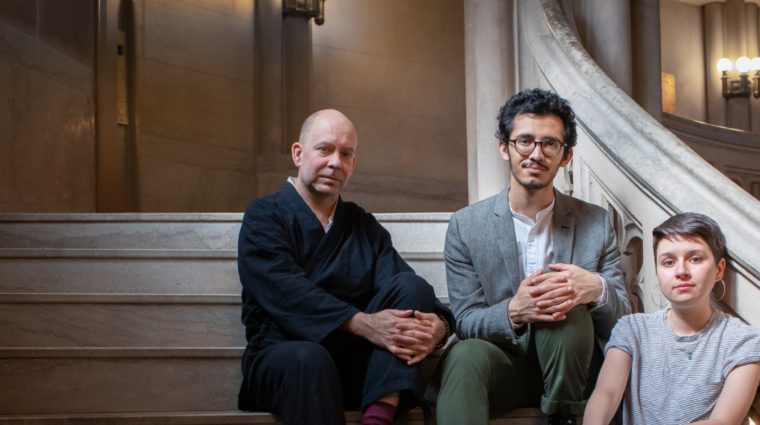
A More Plural Union
Dr. Simran Jeet Singh describes Union's interreligious engagement programs, interviewing Professor Greg Snyder and students in the Buddhism and Interreligious Engagement M.Div. pathway.
Read More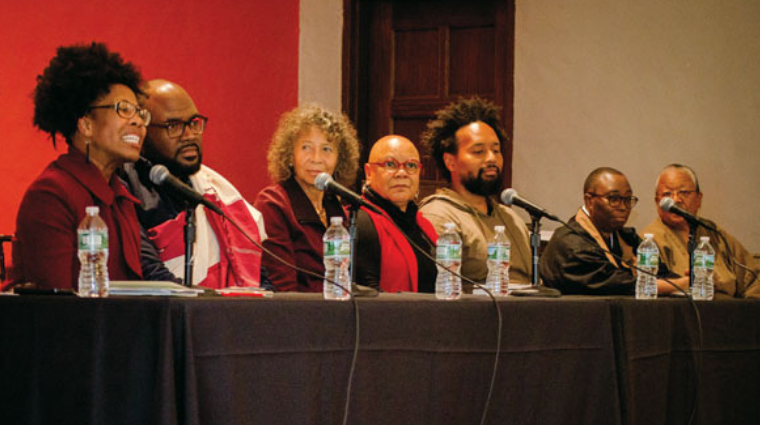
Power & Heart: Black and Buddhist in America
At the first-ever gathering of Buddhist teachers of black African descent, two panels of leading Buddhist teachers took questions about what it means to be a black Buddhist in America today.
Read the Q&A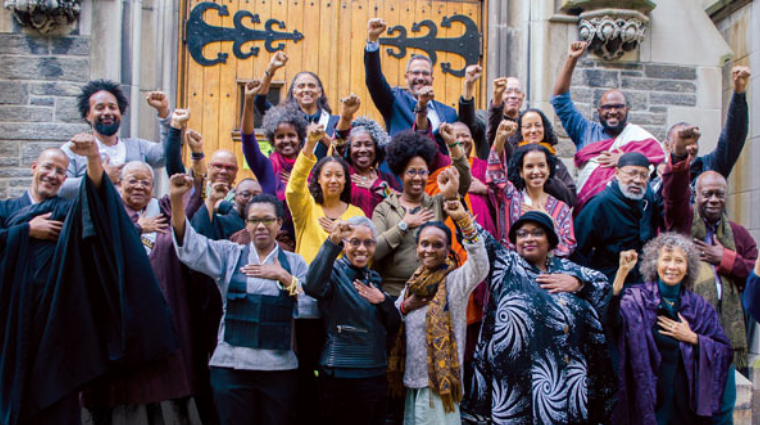
Black Bodhisattvas
Dr. Kamilah Majied reflects her experiences at The Gathering of Buddhist Teachers of Black African Descent and what it means for humans to be free within ourselves, despite social, political, or “legal” imprisonment or persecution.
Read MoreThich Nhat Hanh '63 Awarded Union Medal
On September 6, 2017, Union awarded Thich Nhat Hanh—internationally celebrated Zen Buddhist monk, dharma teacher, scholar, author, and peace activist—with the Union Medal. Sister Chan Duc, an emissary from Plum Village, the monastery Nhat Hanh founded in France, accepted the medal on his behalf.
Read MorePast Events
Compassion Conversation: Thupten Jinpa and Serene Jones
The Thích Nhất Hạnh Program for Engaged Buddhism and Compassion Institute hosted a conversation with Tibetan Buddhist scholar, translator and author, Thupten Jinpa, and president of Union Theological Seminary, Serene Jones.

Emptiness and Social Action with DaRa Williams
The Buddha spoke of four immeasurable dwelling places of the heart that we now practice called the brahmaviharas. DaRa Williams spoke about how even in the midst of the challenging moments of today, we can rest our heart and develop balance, joy, kindness, and care.
Read MoreEmptiness and Social Action with Bhante Buddharakkhita
Abbot Ven. Bhante Buddharakkhita discusses how conceptual, inferential, and experiential knowledge into emptiness of an inherent self invites a response to circumstances that are stressful, painful, and violent.
Emptiness and Social Action with Geoffrey Shugen Arnold, Roshi
Misunderstanding the teachings and truth of emptiness can lead to apathy, despair or rationalized disinterest. Sincere practice and correct understanding allows us to be truly and skillfully engaged within the world of samsara, without becoming overwhelmed by the suffering we encounter.
Read More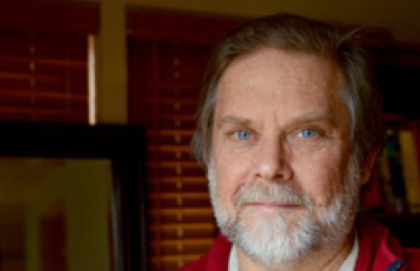
Emptiness and Social Action with David Loy
The most important contribution of Buddhism to our situation today is the bodhisattva path, understood in a new way that combines the traditional concern for personal transformation with a commitment to social transformation. Does social engagement distract us from the realization of emptiness, or does emptiness empower social engagement?
Read MoreEmptiness and Social Action with Bhikku Bodhi
Ven. Bhikkhu Bodhi draws upon three classical Buddhist sources that deal with the legitimation of political authority: the suttas of the Pali Canon, the edicts of King Asoka, and Nagarjuna’s Precious Garland. He then applies the principles derived from this survey to the present-day question of a government’s obligations to its citizenry.
Read More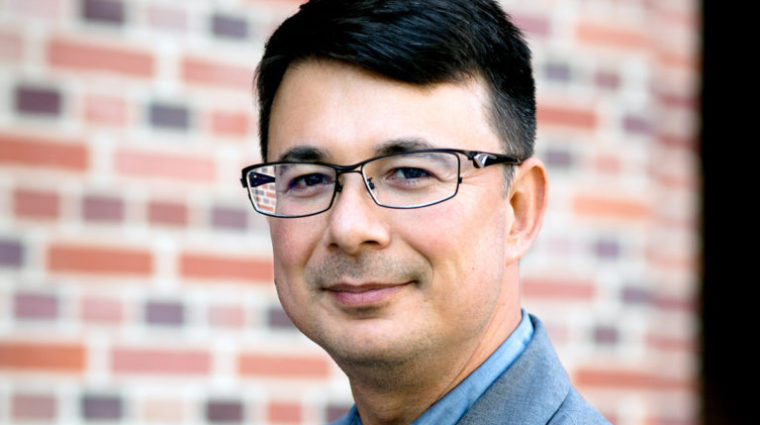
American Sutra: Buddhism and the WWII Japanese American Incarceration
In the face of discrimination, dislocation, dispossession, and confinement, Japanese Americans turned to their faith to sustain them. American Sutra reveals how the Japanese American community broadened our country’s conception of religious freedom and forged a new American Buddhism.
Read MoreEmptiness and Social Action with Greg Snyder
The Thích Nhất Hạnh Program for Engaged Buddhism invites you to join us for our monthly Dharma Talk Series: Emptiness and Social Action.
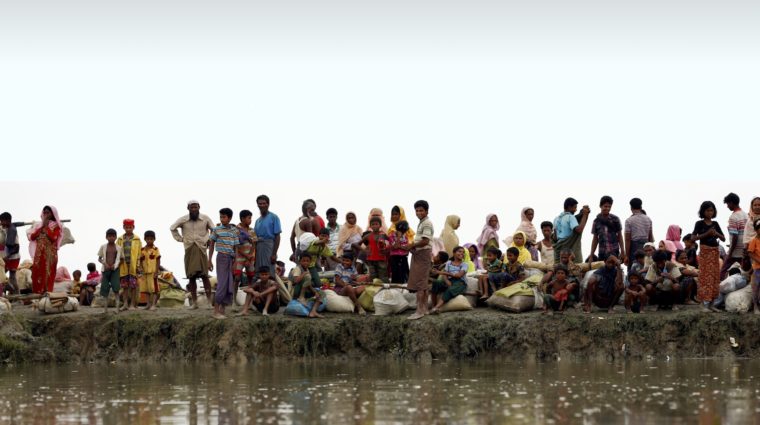
Rohingya Genocide Panel Discussion
Co-hosted by the Buddhist Action Coalition, this conversation focused on the causes and conditions of the crisis, along with the role that Buddhist laity and monastic communities have played in the rhetoric and violence.
Read More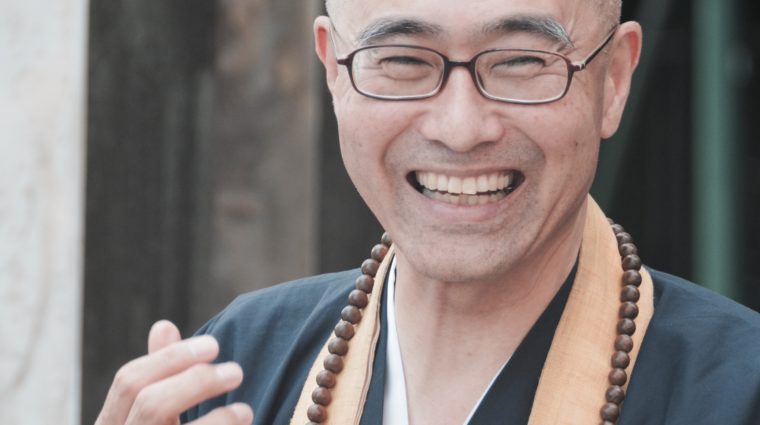
A Buddhist Peace Symbol
Rev. Dr. TK Nakagaki, author of "The Buddhist Swatsika and Hitler's Cross; Rescuing a Symbol of Peace from the Forces of Hate," in conversation with Rabbi, author and poet Sheila Peltz Weinberg and Professor Mary Boys.
Read MoreExploring Patience and its Strength
April 17, 2019
Ven. Khenpo Pema Wangdak leads a discussion and meditation on the subject of patience.
Black & Buddhist in America
This unprecedented public gathering brought together 15 leading Buddhist teachers of black African descent from across the country to talk about dharma, the state of the world, and what it means to be a black Buddhist in America today.
Read More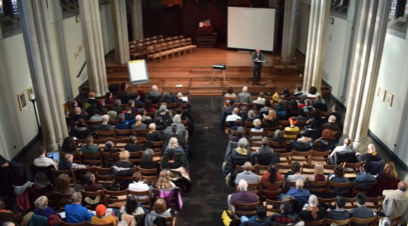
Buddhist Action: Morals, Vision, Justice
February 3, 2018
A gathering of New York Area Buddhist practitioners, scholars, activists and teachers.
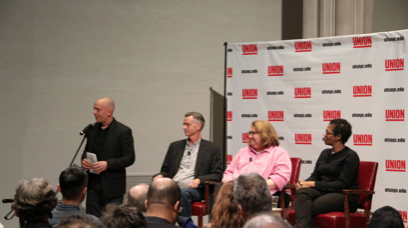
Buddhism, Love, and Politics
November 1, 2017
A conversation featuring Sharon Salzberg, angel Kyodo williams, and Robert Wright.
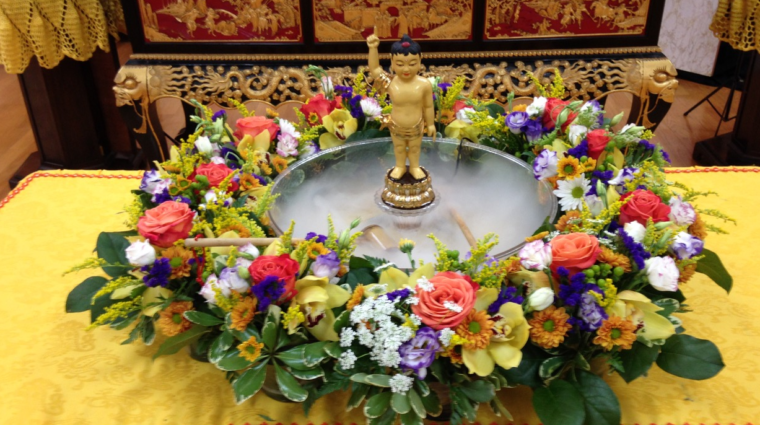
NYC Vesak Celebration
The Thich Nhat Hanh program and the Buddhist Council of New York partnered for Vesak festivities. Vesak marks the traditional celebration of Buddha’s birthday in countries around the world. Celebrating Vesak involves making special efforts to reduce the suffering of sentient beings who are less fortunate.
Read More